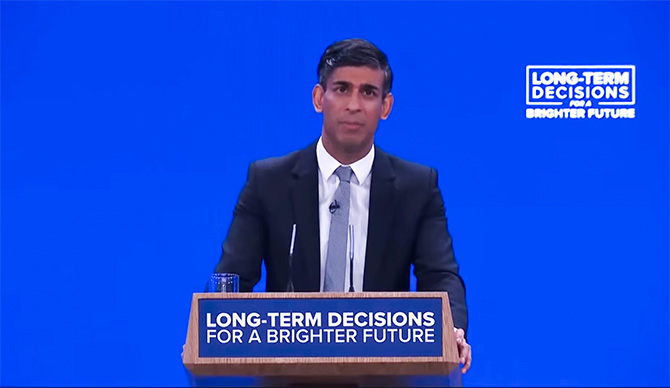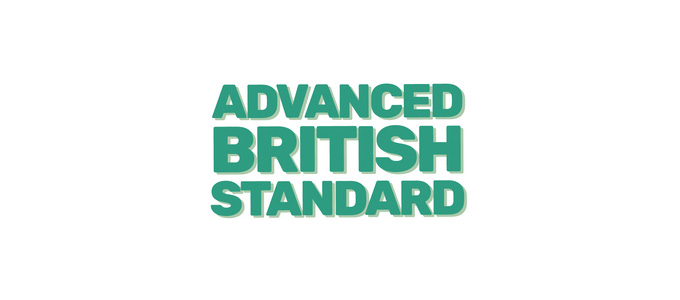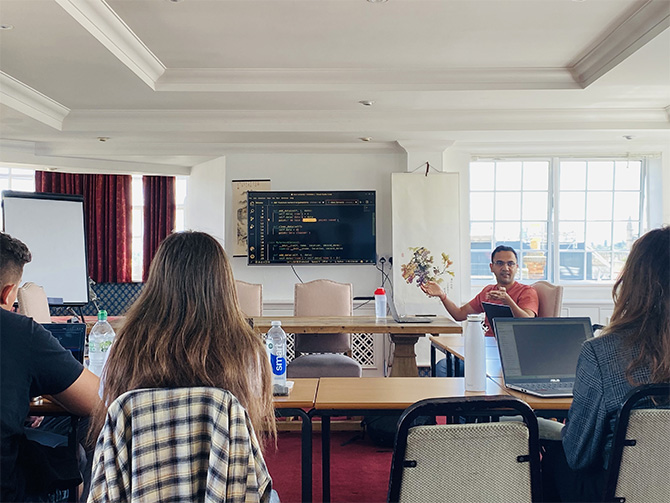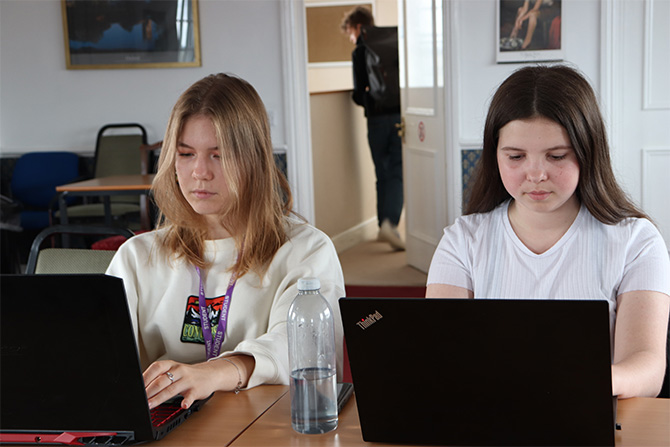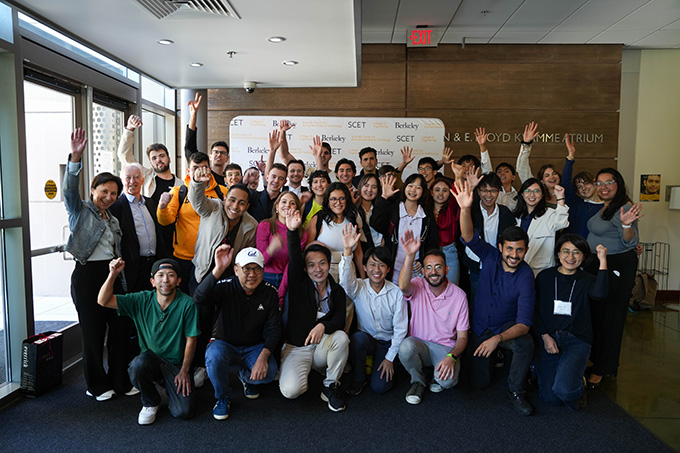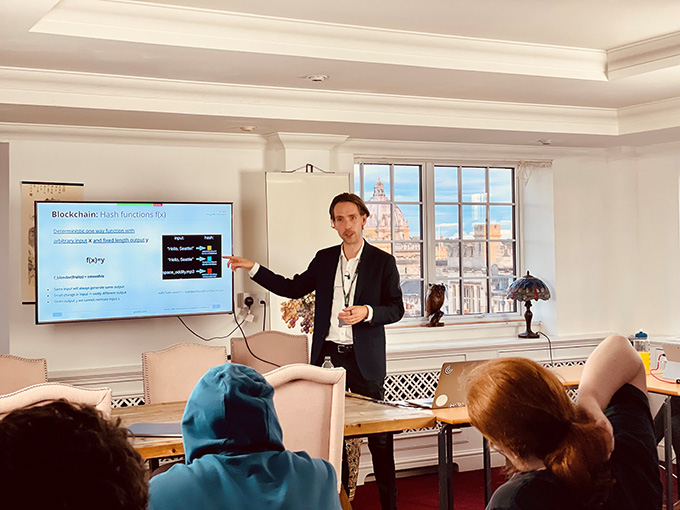The ‘Advanced British Standard’ initiative
Some education industry news for you in our most recent publication:
The Prime Minister’s office has recently announced a new education initiative which the Government hopes to implement in the forthcoming decade: the Advanced British Standard.
What is the Advanced British Standard (ABS)?
The introduction of the ABS is intended to transform the landscape of education as it aims to combine the best elements of T-Levels and A-Levels into a single qualification.
Prime Minister Rishi Sunak unveiled this groundbreaking initiative at the Tory Party Conference held in Manchester on the 4th of October 2023. The new qualification, promises to equip 16-19-year-olds with a comprehensive education, ensuring proficiency in both technical and academic domains.
At the conference, Rishi Sunak announced, “First, the Advanced British Standard will finally deliver on the promise of parity of esteem between academic and technical education, because all students will sit the Advanced British Standard.
“Second, we will raise the floor, ensuring that our children leave school literate and numerate, because with the Advanced British Standard all students will study some form of Maths and English to 18, with extra help for those who struggle the most. In our country no child should be left behind.
“Third, our 16–19-year-olds spend around a third less time in the classroom than some of our competitors. We must change this. So, with our Advanced British Standard, students will spend at least 195 hours more with a teacher.
“Fourth, A-Level students generally only do three subjects compared to the seven studied by our economic competitors. The Advanced British Standard will change that too, with students now typically studying five subjects, and thanks to the extra teaching time that we are introducing, the greater breadth won’t come at the expense of depth, which is such a strength of our system.”
What do we know so far?
Although, we do not exactly know when the actual qualification will become available, there is an indication that there will be a phased roll out to begin with.
Some key features of the Advanced British Standard (ABS) promise to deliver the following:
1. Equal emphasis on technical and academic education:
- The ABS will establish parity between technical and academic education, providing students with a well-rounded skill set.
- Students will have the flexibility to choose a mix of technical and academic subjects, offering a diverse range of options for their future careers.
2. Comprehensive study of Maths and English:
- Every student, for the first time, will be required to study some form of Maths and English until the age of 18. This move addresses a historical trend where too many students, especially the disadvantaged, left school without achieving the minimum standard in literacy and numeracy.
- This aligns England with major western economies such as France, Germany, Japan, and the USA.
3. Broader Curriculum with increased teaching hours:
- The new qualification will amalgamate the best aspects of A-Levels and T-Levels, offering a curriculum where students will typically study a minimum of five subjects, including both ‘major’ and ‘minor’ subjects.
- Teaching hours will be increased providing students with more in-depth knowledge and practical skills.
4. Gradual replacement of A-Levels and T-Levels:
- The ABS is set to replace A-Levels and T-Levels, combining the strengths of both qualifications into a single, robust standard.
- While A-Levels and T-Levels will continue to be offered during the transition period, the new standard is expected to be fully rolled out over the next decade.
5. Government investment for effective implementation:
- To support the transition, initial investment of £600 million will be provided, giving more breadth, more technical education, more teaching time and improving recruitment and retention.
- The plan underscores the government’s commitment to long-term reform and the future of education in the country.
6. Consultation for stakeholder involvement
- A consultation process will be initiated in the coming autumn, involving parents, pupils, teachers, and other stakeholders.
- The government is dedicated to working closely with the education sector to ensure the effective design and implementation of the ABS.
7. Gradual implementation and continued support
- Pupils starting primary school this term anticipated to be the first cohort benefit.
- A phased approach will be taken, allowing schools and colleges to adapt, and ongoing support will be provided to ensure a smooth transition.
Cherwell’s reaction to the Advanced British Standard
What about here and now? And how we can transform education for the current generation of students without waiting for a kick from the Government?
Over the past few years, Cherwell College Oxford has taken steps to implement exposures of various technological developments for students to engage with, with a core belief of the college that it is crucial for students to be aware of technological advancements which will have an ever-growing impact on their futures. Katya Kryvonos, a representative from Cherwell College Oxford, expressed, “It’s fascinating for staff and tutors to think about how we can embrace and implement these new technologies both in the workplace and for our students.”
As an added benefit, Cherwell College Oxford students get to write about their engagement with the various technology initiatives ran at the college on their personal statements and CV’s, which has proven to be a fantastic addition, helping them to stand out when applying to university.
With plans from the government to implement the Advanced British Standard over the next decade, Cherwell will continue to run their exciting initiatives, engaging students with classes and sessions ran by industry professionals.
Read more below about Cherwell College Oxford’s AI & Robotics Club, the AI & Innovation Summer Camp, and the recent collaboration with the University of California, Berkeley Sutardja Center for Entrepreneurship & Technology, which aims to enhance entrepreneurship training.
AI & Robotics Club with Yash Bhalgat
Cherwell students have access to participate in the College’s weekly Ai & Robotics Club, one of the extracurricular activities offered to all students. Computer Science students benefit from the added value provided by the sessions for their curricular studies, however, recently, students have joined the club from diverse backgrounds including art, business, and maths.
The Club is run by Yash Bhalgat, a PhD researcher from the University of Oxford, and previously a senior researcher at Qualcomm AI Research, where he worked with Computer Vision and Efficient Deep Learning. Yash is also an AI researcher at the University of Oxford.
Yash explains the motivation to run AI & Robotics Club at Cherwell is because “students are not taught AI in the normal school curriculum, and if they are, then they are not taught within a practical setting. The two outcomes we aim for in our sessions are, first, to teach students about the basics, explain to them what AI algorithms are, what different types exist, how they work and so on.
“The second outcome is learning about how you can use them. I ask the students to think about a project they want to work on/create, what excites them. One of our students wanted to work on tracking human motion, which is a very exciting idea, and I don’t know if he knows it, but it is also has a lot of value in today’s world. Once each student has chosen their project, we discuss different technologies we could use to make their project come to life. It is a hands-on experience, so the students get to trial real technologies, and learn how they can implement them. This is very important because when you learn theory it’s just theory, when you come to implement technologies, you need to understand the nitty gritty details and learn how these technologies work when building a project, the practical side.
“For students studying computer science at pre university level, the AI & Robotics Club also helps them to gain inspiration and an understanding that the subject is much bigger than what they get to learn at their current level. One of the students who attended the AI & Robotics Club, has now got work experience at a climate tech start up. Prior to joining our club, the student knew he wanted to study politics, but after attending our club, he discovered that he wanted to study politics from the perspective of data science, and how you can use data science in politics, which is a very interesting field. If that student hadn’t had the exposure to AI, most probably, he wouldn’t know this would be possible. For me, this is another clear benefit of the AI & Robotics Club. It’s fantastic to see our students explore these new ideas and topics which can enable them to understand where they may end up in their futures.”
AI & Innovation Summer Camp
Yash is also a tutor and course lead for the Cherwell AI & Innovation Summer Camp.
The initiative was launched in Summer 2022, after Cherwell invited Predli, a technology consultancy firm from Stockholm to deliver a two-day workshop for students, who found themselves absorbed by the information shared on topics such as blockchain, DeFi and DeepMind, which are completely novel topics to what is taught through the regular curriculum.
After a positive response from the workshop, Cherwell decided to join forces with Yash to design a two-week extracurricular course which now runs annually in August.
Yash explained, “One of the main reasons I wanted to teach was because it is such as gratifying profession, when you impart the knowledge you have on students and they understand what you are teaching, it feels very good. The AI & Innovation Summer Camp is a very quick two-week course, the first week we cover Python and computing fundamentals, because if you want to learn AI, you need to know how to code. Python is a very common programming language (coding software) which people use to implement AI, so I believe this is crucial step to cover.
“The second week of the course is more about AI. We divide the five days of the week into five different vertices, because AI is made up of a lot of elements. One is the application side, what can you do with AI? One is the algorithmic side, how does it work? One explores AI ethics and safety, how can it be harmful, what do you need to be aware of, and how can you take measures to mitigate the risks with AI? We also talk about aspects which the students are excited to explore. I am really excited about how Cherwell is adopting these new ideas. Teaching students about these revolutionary technologies and more importantly, exploring new ideas, it is very important.”
Cherwell College Oxford and UC Berkeley’s SCET collaboration enhancing entrepreneurship training
In June this year, Cherwell College Oxford and the University of California, Berkeley Sutardja Center for Entrepreneurship & Technology (SCET) joined forces in a collaboration focused on faculty training and mentorship development at both institutions to further enhance their educational processes and foster a supportive environment for student growth.
The Sutardja Center is renowned for its work in entrepreneurship and technology, with a global innovation hub at UC Berkeley’s College of Engineering. The centre offers a suite of courses and programs for students, executives, and global innovators, as well as conducting research in emerging technologies. The partnership with Cherwell College Oxford will further strengthen the centre’s commitment to promoting entrepreneurship and innovation on a global scale.
Through this partnership, Cherwell College Oxford will continue to build upon its strong reputation for delivering first-class education in a positive, motivating, and rewarding learning environment. The Principal of Cherwell College Oxford (Stephen Clarke) also emphasised his associations with ATOM Festival, the Institute of Directors (IoD), the Leaders Council, and the Oxfordshire Local Enterprise Partnership (OxLEP) as a testament to the commitment to innovation and growth in the educational sector.
Explore the Cherwell AI Summer Camp here
Read more about the Cherwell College Oxford and UC Berkeley’s SCET collaboration here
Explore ‘The Advanced British Standard’ policy paper here
Contact Cherwell College Oxford about studying GCSE or A-Levels. January 2024 intake admissions close 10th December 2023.


